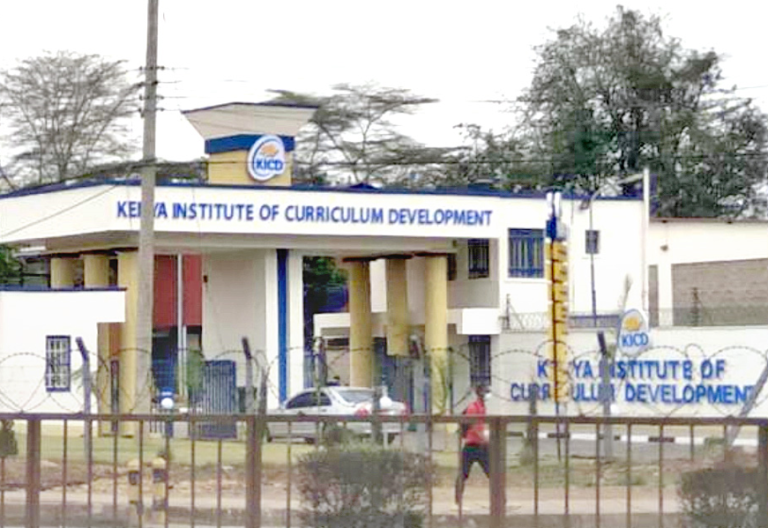Investigations
Unpacking the Sh540 Million Textbook Scandal in The Ministry of Education

A damning audit report has laid bare the extent of financial mismanagement and systematic failures that have plagued Kenya’s textbook distribution system, revealing how over half a billion shillings may have been lost through poor planning, irregular deliveries, and outright negligence within the Ministry of Education.
The special audit conducted by Auditor-General Nancy Gathungu paints a troubling picture of how public funds meant to ensure every Kenyan child has access to learning materials have instead been squandered through a web of administrative incompetence and questionable practices spanning four years from 2020 to 2024.
At the heart of this scandal lies a fundamental breakdown in accountability.
The State Department for Basic Education disbursed Sh27.9 billion to the Kenya Institute of Curriculum Development for textbook procurement, yet KICD’s records show receipts of Sh28.2 billion, creating an unexplained variance of Sh378 million that no one seems able to account for.
This discrepancy alone should have triggered immediate investigations, yet it appears to have gone unnoticed or deliberately ignored.
The audit’s findings reveal a system so dysfunctional that it borders on the absurd.
Schools received textbooks for subjects they don’t teach, while others were left without basic learning materials despite payments being made to publishers.
Some institutions received excess books worth millions while their neighboring schools went without, creating an inexplicable distribution pattern that defies logic and suggests either gross incompetence or deliberate manipulation.
The numbers tell a story of systematic failure. A total of 394 secondary schools, 94 junior secondary schools, and 182 primary schools received excess textbooks valued at Sh90.8 million.
Meanwhile, 183 secondary schools, 233 junior schools, and 253 primary schools never received books worth Sh41.4 million despite these being paid for.
This represents a catastrophic failure in planning and execution that has directly impacted thousands of learners across the country.
Perhaps most troubling is the discovery that 118 secondary schools, 225 junior schools, and 26 primary schools received textbooks worth Sh30.3 million for subjects they don’t offer.
This suggests either a complete lack of communication between KICD and schools or a deliberate attempt to inflate delivery figures while ignoring actual educational needs.
The audit also uncovered delivery delays spanning from three months to over three years across 76 different order numbers, indicating that even when books were eventually delivered, they often arrived too late to be useful for the academic year they were intended for.
Such delays not only waste public resources but also undermine the entire educational process.
Adding to these concerns is the revelation that 110 schools failed to maintain proper records of textbooks and instructional materials received.
This violation of Basic Education Regulations creates a perfect environment for corruption and makes it impossible to track where resources actually end up. Without proper record-keeping, there’s no way to ensure accountability or prevent theft and misappropriation.
The audit report highlights fundamental weaknesses in the procurement process itself.
KICD failed to include textbook purchases in its procurement plans, while the State Department for Basic Education never disclosed the criteria used for transferring funds or the rate per learner for textbooks.
This lack of transparency makes it impossible for oversight bodies to monitor the process effectively.
The broader implications of this scandal extend far beyond the immediate financial losses.
In a country where access to quality education remains a significant challenge, the mismanagement of textbook distribution directly affects learning outcomes.
Children in schools that received no books or inappropriate materials are being denied their constitutional right to education, while excess books sitting unused in other schools represent missed opportunities for learning.
This scandal also raises serious questions about the effectiveness of Kenya’s public financial management systems.
How can such massive discrepancies and irregularities persist for four years without detection? Where were the internal controls, oversight mechanisms, and accountability structures that should have prevented or quickly identified these problems?
The timing of this audit report is particularly significant as it comes amid broader concerns about corruption and mismanagement in various government sectors.
The textbook scandal adds to a growing list of procurement irregularities that have cost taxpayers billions of shillings while undermining service delivery.
For parents and educators who have watched helplessly as children struggle without adequate learning materials, this audit confirms what many have long suspected – that the system designed to support education has been failing them.
The loss of Sh540 million could have provided textbooks for thousands of additional students or improved educational infrastructure across the country.
The scandal also exposes the disconnect between policy makers and ground realities.
While officials in Nairobi were disbursing billions of shillings, teachers in rural schools were conducting lessons without basic textbooks, and students were sharing the few available books among large classes.
Moving forward, this audit report must serve as a catalyst for comprehensive reforms in how educational resources are procured and distributed.
The Ministry of Education needs to establish clear accountability mechanisms, improve record-keeping systems, and ensure that distribution patterns align with actual school needs rather than arbitrary decisions made in boardrooms.
The Auditor-General’s findings demand immediate action from relevant authorities.
Those responsible for this mismanagement must be held accountable, and systems must be put in place to prevent similar occurrences in the future.
Most importantly, measures must be taken to ensure that the primary victims of this scandal – Kenya’s children – receive the educational materials they desperately need.
The Sh540 million textbook scandal represents more than just financial mismanagement; it’s a betrayal of Kenya’s commitment to providing quality education for all.
As investigations continue and accountability measures are implemented, the focus must remain on ensuring that such systematic failures never again compromise the educational prospects of Kenyan children.
Kenya Insights allows guest blogging, if you want to be published on Kenya’s most authoritative and accurate blog, have an expose, news TIPS, story angles, human interest stories, drop us an email on [email protected] or via Telegram
-

 Business2 weeks ago
Business2 weeks agobetPawa Empire Crumbles: Mr Eazi’s Betting Gambit Unravels Amid Partner’s Shadowy Deals
-

 Business1 week ago
Business1 week agoMinnesota Fraud, Rice Saga, Medical Equipment Deal: Why BBS Mall Owner Abdiweli Hassan is Becoming The Face of Controversial Somali Businessman in Nairobi
-

 News1 week ago
News1 week agoDCI Probes Meridian Equator Hospital After Botched Procedure That Killed a Lawyer
-

 Politics1 week ago
Politics1 week agoYour Excellency! How Ida’s New Job Title From Ruto’s Envoy Job Is Likely to Impact Luo Politics Post Raila
-

 Business1 day ago
Business1 day agoCooking Fuel Firm Koko Collapses After Govt Blocks Sh23bn Carbon Deal
-

 Investigations2 weeks ago
Investigations2 weeks agoEXPOSED: SHA Officials Approve Higher Payments for Family, Friends as Poor Patients Pay Out of Pocket
-

 News1 week ago
News1 week agoKenya Stares At Health Catastrophe As US Abandons WHO, Threatens Billions In Disease Fighting Programmes
-

 Politics2 weeks ago
Politics2 weeks agoJaramogi Clan Tells Raila Jr, Winnie Against Disrespecting Their Uncle Oburu, Warns of Curses
























